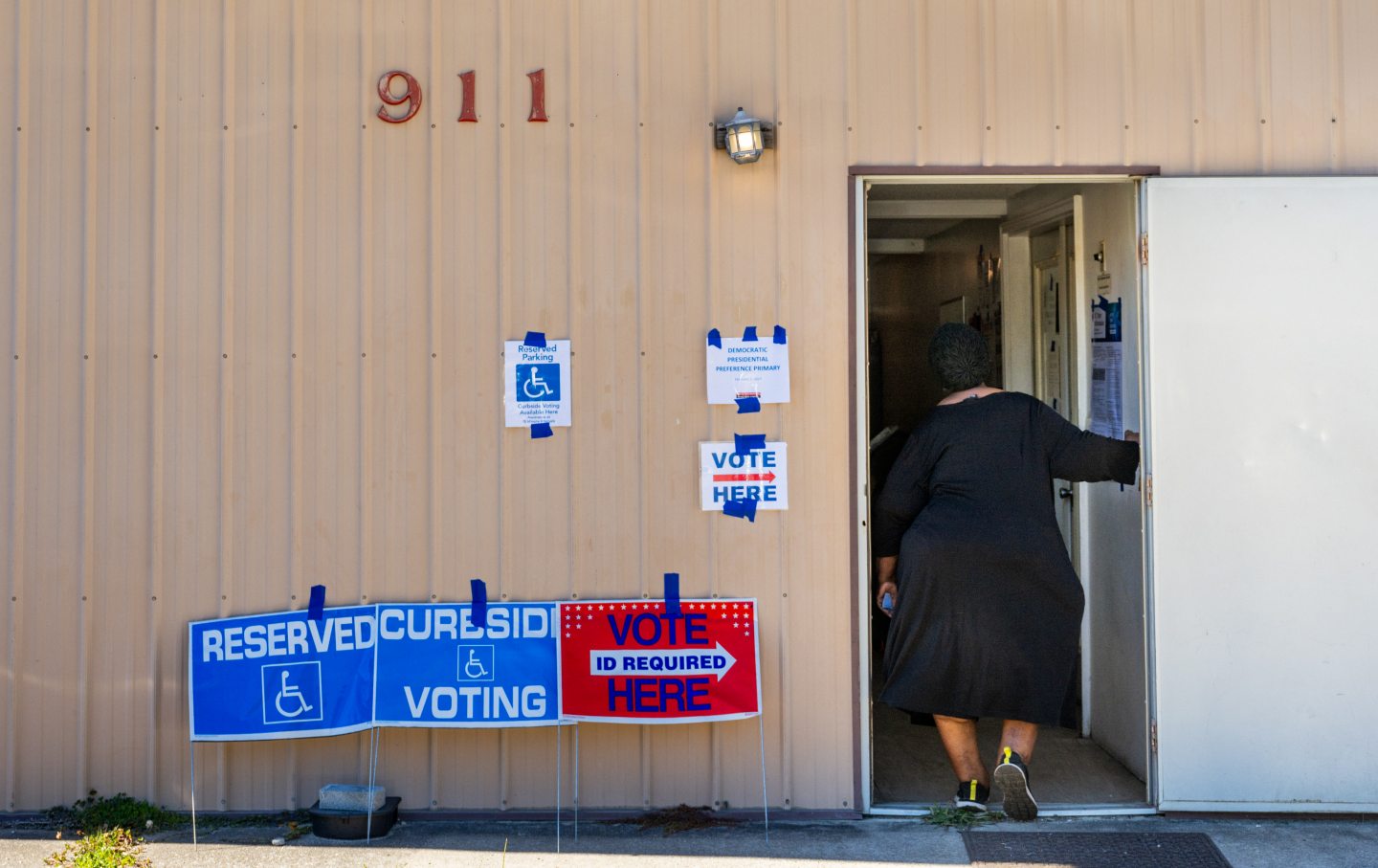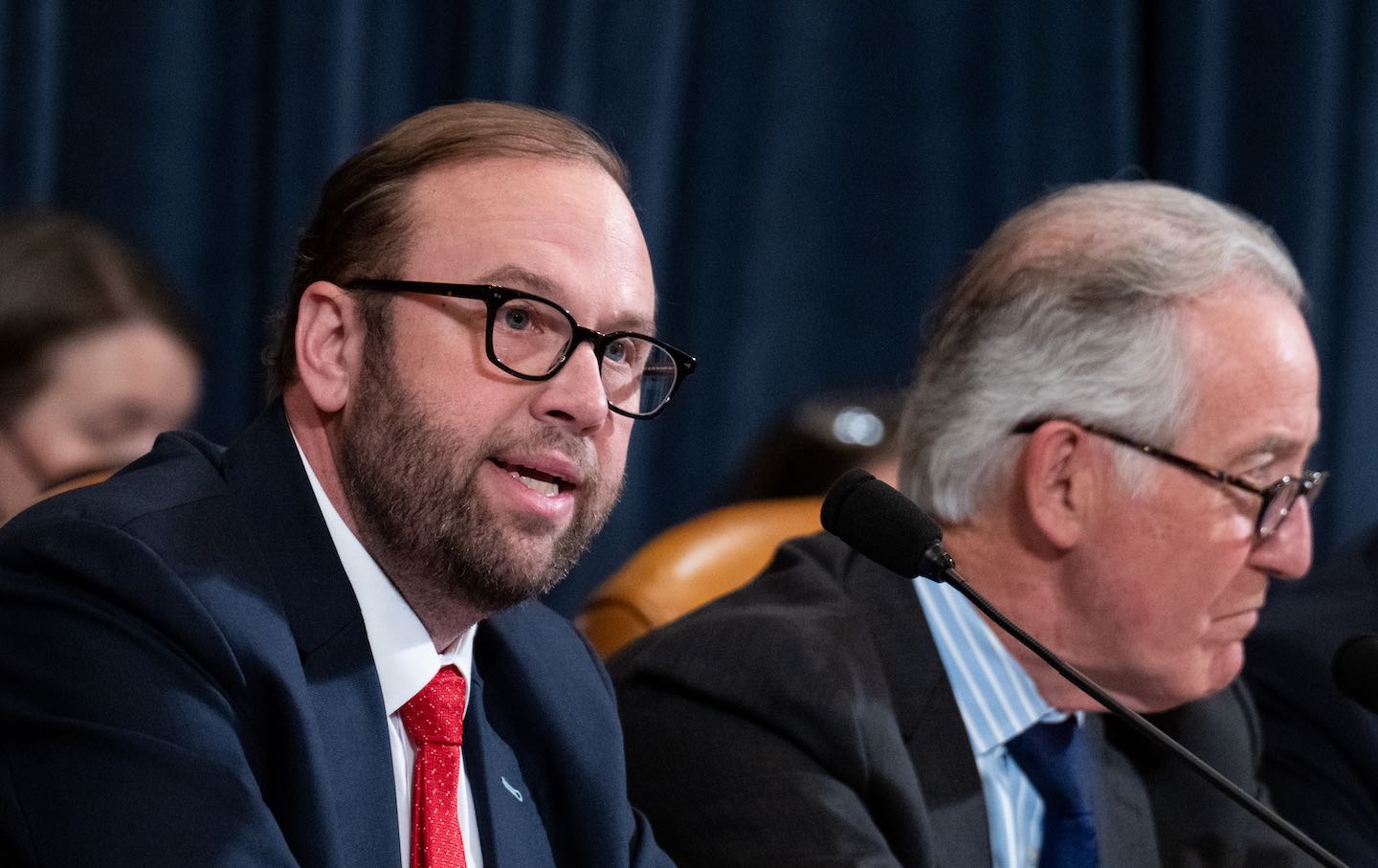The Only Thing Worse Than Taking Rural Voters for Granted
… is dismissing them as out of reach for Democrats.

Donald Trump often tells rural folks that he loves them. Contrary to myth, not all of them love him back. According to The Rural Voter, a new book by the political scientists Nicholas Jacobs and Dan Shea, only about one in 10 rural people are what they call “rabble-rousers”—the kind of MAGA die-hards who tweet incessantly or raise a stink at school board meetings, often with an intimidating edge.
While more conservative on average than urbanites, rural Americans are far from monolithic—racially, culturally, or politically. Even among rural conservatives, about a third are less fans of Trump than they are people who’ve come to mistrust Biden.
Some of these folks are potential Biden voters. To win in November, the president needs every one of them he can get.
In 2012 and 2018, one of us (Anthony) ran for Congress in Virginia’s Ninth District, a mainly rural area in the southwestern corner of the state. The district previously had a Democratic congressman for 28 years and sent several Democrats to the state Legislature. While the Tea Party victories of 2010 ushered in what appeared to be sudden changes to the region’s politics, the underlying causes of that red wave had been festering for decades.
Southwestern Virginia’s shift from a politically purple region to one that votes more than 70 percent Republican is the story of much of the American countryside. Rural America is working-class country, and the decline of Democratic power there tracks the party’s broader failure to hang on to what was once its working-class base.
As recently as 2008, Barack Obama won 45 percent of rural and 46 percent of white working-class votes nationwide. In 2016, barely three in 10 rural Americans voted for the Democratic presidential candidate. Liberal pundits—most of them urban—often ascribe this shift to deep-seated racism and anger at being “left behind” by the so-called knowledge economy. That analysis misses the mark by a country mile.
Rural America hasn’t been left behind so much as it has been worn down: by timber, coal, gas, copper, and other metals extracted until what’s left is too expensive to reach; by companies pulling out and workers left holding the bag; by hogs, cattle, chickens, and grains produced and shipped out in abundance, with farmers getting only pennies on the dollar that consumers pay; by midsize textile and furniture factories steadily upgrading equipment and worker skills, only to be undermined by trade policies that favor cheaper labor anywhere it can be found.
As rural economies imploded, Democrats and Republicans alike stood idly by. But liberals added insult to injury by looking down on the “dank backwaters” of rural America or glibly insisting that people abandon their communities and go where the jobs are.
Rural Americans are angry because we’ve spent decades at jobs making homes warmer and food cheaper for our suburban and urban neighbors, only to be economically discarded and culturally vilified as racist rubes. As one Iowa Republican put it, “It was a huge insult to say that you support Trump because you’re racist. A lot of them here voted for Obama. Democrats see us as uneducated, simple thinkers who’ve got guns. It’s a huge boon for the Republican Party.”
Trump has a knack for stoking resentment, and in 2016, rural resentment was plentiful, mostly against the establishment and the political class. Nation contributing editor Christian Parenti sacrificed many hours of his life listening to countless Trump speeches. “Trump took the Bernie [Sanders]–style populism,” he wrote, “emptied it of real class politics, reduced it to a jumble of affective associations, and used it to beat up the smug liberals of the professional-managerial class. It worked.”
People in rural areas are overwhelmingly working-class—about 70 percent lack college degrees—as are voters in the swing states Biden must win (Michigan, Pennsylvania, Wisconsin, Nevada, and Arizona). Fortunately, working-class voters are swingy: Of the battleground-state voters who switched to the Democrats between 2016 and 2020, an estimated 72 percent were non–college graduates.
Biden won 32 percent of the rural vote in 2020, a small but crucial one-point improvement over Hillary Clinton’s performance in 2016. Clinton had a single, short-term rural outreach staffer, based—we kid you not—in Brooklyn. A Biden campaign spokesperson tells us the president will soon be hiring a rural engagement director, and we’re optimistic that person will actually visit people and places outside of the Acela corridor.
Popular
“swipe left below to view more authors”Swipe →Heading into November, Biden is well-positioned to capture rural swing voters because of his administration’s pro-rural, pro-labor accomplishments. From cracking down on monopolies that gouge consumers and shortchange farmers, to shoring up labor laws, to making massive investments in rural infrastructure and family farms, Biden has put his administration’s money where Trump’s mouth was. Indeed, his first term has been more progressive for working people than anything we’ve seen in over four decades. And if his State of the Union address is any indication, we can expect another round of investments that benefit working Americans during his second term.
Democrats won’t win a majority of rural voters anytime soon, but they absolutely must improve their numbers in the countryside. Significantly high defections among Latino, Black, and young voters mean that Democrats cannot rely on their base alone.
Yet Biden is already under enormous pressure from the campaign-industrial complex to blow off rural voters as irredeemable MAGA bigots. Recall Chuck Schumer’s 2016 game plan: “For every blue-collar Democrat we lose in western Pennsylvania, we will pick up two moderate Republicans in the suburbs in Philadelphia, and you can repeat that in Ohio and Illinois and Wisconsin.”
The result was not only victory for Trump but the collapse of the Democrats’ historic “blue wall.” That wall must be built back better, from the tribal lands to the Black Belt to the hollers of Appalachia. We rural Americans are once and future Democrats.
Thank you for reading The Nation!
We hope you enjoyed the story you just read, just one of the many incisive, deeply-reported articles we publish daily. Now more than ever, we need fearless journalism that shifts the needle on important issues, uncovers malfeasance and corruption, and uplifts voices and perspectives that often go unheard in mainstream media.
Throughout this critical election year and a time of media austerity and renewed campus activism and rising labor organizing, independent journalism that gets to the heart of the matter is more critical than ever before. Donate right now and help us hold the powerful accountable, shine a light on issues that would otherwise be swept under the rug, and build a more just and equitable future.
For nearly 160 years, The Nation has stood for truth, justice, and moral clarity. As a reader-supported publication, we are not beholden to the whims of advertisers or a corporate owner. But it does take financial resources to report on stories that may take weeks or months to properly investigate, thoroughly edit and fact-check articles, and get our stories into the hands of readers.
Donate today and stand with us for a better future. Thank you for being a supporter of independent journalism.
Thank you for your generosity.
More from The Nation

Donald Trump Is Scared of Women Voters on Abortion Donald Trump Is Scared of Women Voters on Abortion
He evaded Time magazine’s abortion questions repeatedly. What can we learn? He will do anything that benefits him.

Republican Senators Are a Bigger Threat to the Constitution Than Trump Republican Senators Are a Bigger Threat to the Constitution Than Trump
Senators who are supposed to check Trump’s abuses are supporting his immunity claims instead.

I’m Sad for Kristi Noem’s Daughter, Not Just Her Puppy I’m Sad for Kristi Noem’s Daughter, Not Just Her Puppy
The South Dakota governor traumatized her child by killing her dog.

To Imagine a Better Future, Look to John Rawls To Imagine a Better Future, Look to John Rawls
While we cannot change the world with dreams alone, moral ideas can inspire people to come together and change their societies for the better.

The Bipartisan War on Pro-Palestinian Activism The Bipartisan War on Pro-Palestinian Activism
A House bill asks the Treasury to revoke the nonprofit status of suspected “terrorist supporting organizations.” Advocates are already singling out Muslim and Palestinian groups.

Why Kristi Noem Thinks Killing a Puppy Is Good Politics Why Kristi Noem Thinks Killing a Puppy Is Good Politics
The South Dakota governor is betting that GOP voters love performative cruelty, even if it’s inflicted on an adorable young doggy.


